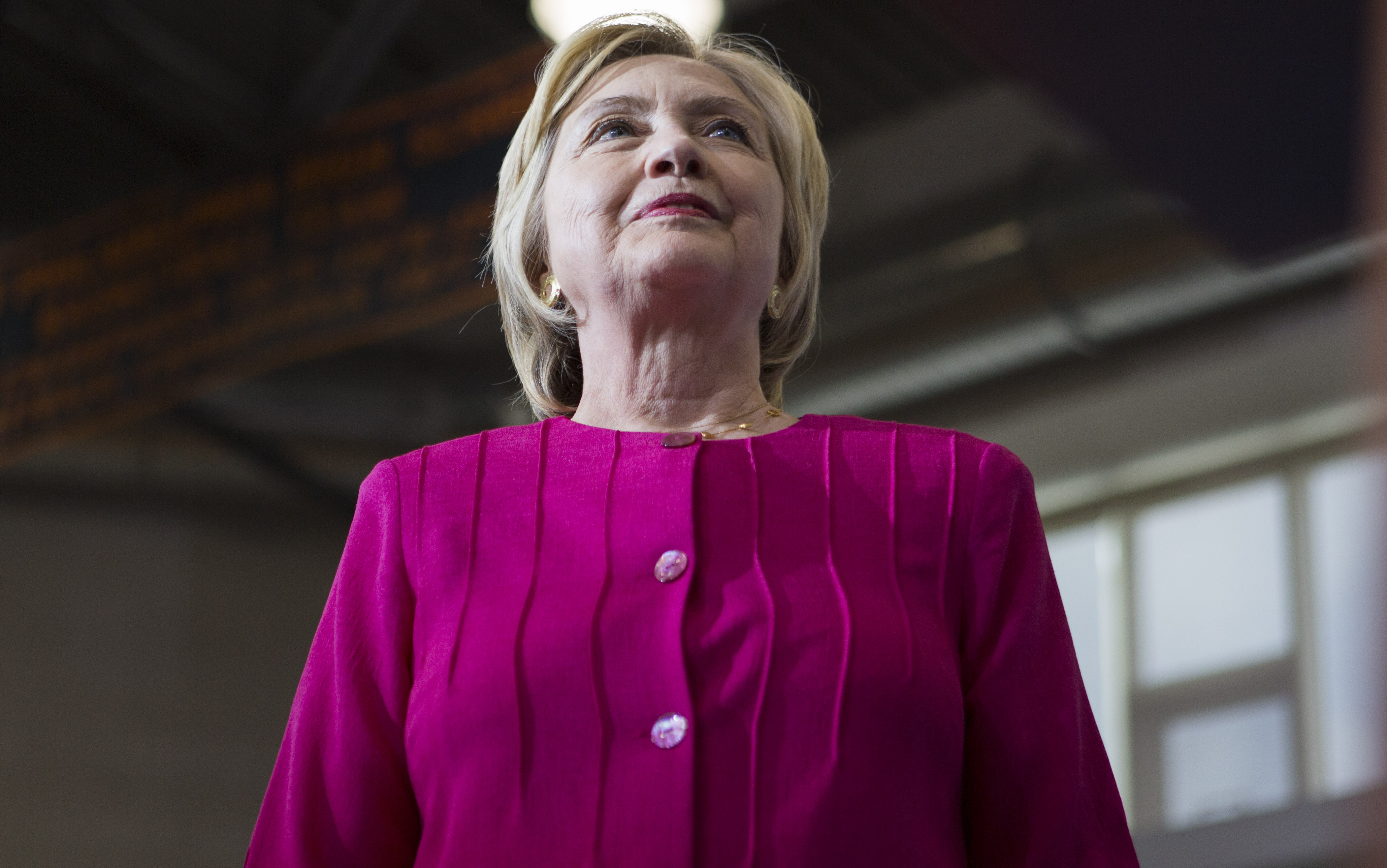Hillary Clinton's economic dream team
So long as we're dreaming about a Clinton administration, here are the economists I'd advise Hillary Clinton to hire


The election isn't here yet, but it's looking more and more likely Hillary Clinton will trounce Donald Trump in November. Speculation over who she might appoint as advisors and agency heads has already commenced. And like anyone else, I have got my own opinions about who Clinton should pick, particularly when it comes to the economics positions.
So here are a few ideas.
There are some obvious liberal powerhouses in economics that Clinton could go with, like Larry Summers or Paul Krugman. This list aims to be a bit more creative. Some of the choices might be better as heads of agencies, like Treasury or Labor, or as deputies at those institutions. And some might be better in advisory rolls at the National Economic Council (NEC) or the Council of Economic Advisors (CEA). But to my mind, they all have the necessary qualifications and policy chops, as well as a willingness to think outside the box.
The Week
Escape your echo chamber. Get the facts behind the news, plus analysis from multiple perspectives.

Sign up for The Week's Free Newsletters
From our morning news briefing to a weekly Good News Newsletter, get the best of The Week delivered directly to your inbox.
From our morning news briefing to a weekly Good News Newsletter, get the best of The Week delivered directly to your inbox.
1. Stephanie Kelton is an economics professor at the University of Missouri-Kansas City. She has served as the chief economist for the Democrats on the Senate Budget Committee, and as an advisor to Bernie Sanders.
Kelton is probably best known for her central work on what's called Modern Monetary Theory (MMT). It emphasizes that debt issued by the federal government really doesn't operate like any other form of debt, because the government (which includes the central bank) can ultimately create all the money it wants. So it can't suffer a debt crisis, but can only create too-high inflation. And finally, that the amount of money the government puts into the economy via spending, versus the amount it takes out via taxes, is a key part of the overall ecology that determines the supply of jobs. And few people have done as much to game out the economic and policy consequences of those simple points as Kelton.
2. Joseph Stiglitz is an economics professor at Columbia University, a former CEA chair, and a Nobel Prize winner. He's one of the most important economists in the world, and probably the one most unafraid to sit squarely and unabashedly to the left of mainstream economic orthodoxy. Even the colleagues who consider him ornery agree he's brilliant.
Stiglitz takes particularly aim at the forces creating inequality, and how they warp society and damage human lives. He's written on the economic forces pushing interest rates ever lower and neutering monetary policy, and how we should respond. And more than just about anyone else of his stature, Stiglitz understands and emphasizes that economics is created by politics: Inequality and stagnant wages are not the product of mere "natural" market forces, but of the way power is distributed throughout society and then used to shape the rules that govern economic outcomes.
A free daily email with the biggest news stories of the day – and the best features from TheWeek.com
3. Heather McGhee started at Demos, a left-leaning policy shop, way back in 2002; now she runs it. In between she was the deputy director of domestic and economic policy for John Edwards' 2008 presidential run, and helped engineer that campaign's breakthrough effort to put the class divide at the center of U.S. politics. With the rise of Trump, she's talked about the need to confront racism head-on if a progressive movement to repair the class divide is going to actually happen. Probably no one is working harder than McGhee to marry racial and economic justice into one coherent goal, backed by serious policy substance.
4. Pavlina Tcherneva is the economics chair at Bard College, and a research scholar at the Levy Economics Institute. She's cut from much the same cloth as Kelton, but Tcherneva has devoted particular energy to the idea of a job guarantee: Using the government's monetary and fiscal powers to launch what would effectively be a "public option" for employment. If a community needs litter cleaned up, a green space revitalized, or its water pipes repaired, then a job guarantee would connect the unemployed with those opportunities. That would ensure that decent and well-paying work is something always on offer to everyone in the economy.
5. William "Sandy" Darity is a professor of economics and public policy at Duke University. His decades of work focus on how inequality and economic stratification affect African-Americans, and intertwine with our country's long history of racial injustice. He's explored ideas ranging from the job guarantee, to providing all Americans with a pre-stocked savings account upon adulthood, to how to desegregate the school system. Most interestingly, Darity has worked on how a real-world economic policy of reparations for the historic damage done to black Americans by slavery and segregation could be put together.
6. Arindrajit Dube is an associate professor of economics at the University of Massachusetts Amherst, and has contributed enormously to our understanding of minimum wage policy and its effects. But his work also covers much of the gamut of the modern issues surrounding labor in America: unions and collective bargaining, the effects of fiscal policy, the details of how competition works in markets, and how inequality intertwines with company performance. He's a nuanced and detailed thinker, but he also understands how the dry details of his research fit into the greater political questions of fairness and communal morality that inevitably come up among Americans when debating things like work and the minimum wage.
7. Dean Baker is a former economics professor at Bucknell University and the co-founder of the Center for Economic and Policy Research. Think of Baker as the antidote to the intellectual sclerosis and rigid narratives that so often bedevil mainstream economic policy thinking. Baker cuts through standard stories about the evils of federal debt, or the universal goodness of globalized trade, with both rigor and nuance. He's a creative thinker when it comes to tax reform, combating rents in the economy, and how to rebuild institutions like the arts and journalism in the age of the internet. I'm merely a well-informed layman, and every time I talk to him, I come away understanding the economic world better than I did before.
8. Jared Bernstein is a senior fellow at the Center on Budget and Policy Priorities, and the former top economic advisor to Vice President Joe Biden. He's the Murtaugh to Baker's Riggs. They even co-authored a book on full employment: detailing its benefits for workers, explaining how it fights inequality and lifts up racial minorities, and laying out some policy proposals. More recently, Bernstein wrote a second book that's a grab bag of policy ideas for how to rebuild a vibrant and growing economy that shares its bounty equitably. He's a practical voice for left-leaning economic policy wisdom who already has significant White House experience under his belt.
Now, I have no idea if any of these eight economists would even want a job in the Clinton White House, much less be offered one. But if Clinton herself asked me tomorrow who she should pick, these are the first people I'd tell her to call.
Jeff Spross was the economics and business correspondent at TheWeek.com. He was previously a reporter at ThinkProgress.
-
 How the ‘British FBI’ will work
How the ‘British FBI’ will workThe Explainer New National Police Service to focus on fighting terrorism, fraud and organised crime, freeing up local forces to tackle everyday offences
-
 The best family hotels in Europe
The best family hotels in EuropeThe Week Recommends Top kid-friendly hotels with clubs, crèches and fun activities for children of all ages – and some downtime for the grown-ups
-
 Moon dust has earthly elements thanks to a magnetic bridge
Moon dust has earthly elements thanks to a magnetic bridgeUnder the radar The substances could help supply a lunar base
-
 The billionaires’ wealth tax: a catastrophe for California?
The billionaires’ wealth tax: a catastrophe for California?Talking Point Peter Thiel and Larry Page preparing to change state residency
-
 Bari Weiss’ ‘60 Minutes’ scandal is about more than one report
Bari Weiss’ ‘60 Minutes’ scandal is about more than one reportIN THE SPOTLIGHT By blocking an approved segment on a controversial prison holding US deportees in El Salvador, the editor-in-chief of CBS News has become the main story
-
 Has Zohran Mamdani shown the Democrats how to win again?
Has Zohran Mamdani shown the Democrats how to win again?Today’s Big Question New York City mayoral election touted as victory for left-wing populists but moderate centrist wins elsewhere present more complex path for Democratic Party
-
 Millions turn out for anti-Trump ‘No Kings’ rallies
Millions turn out for anti-Trump ‘No Kings’ ralliesSpeed Read An estimated 7 million people participated, 2 million more than at the first ‘No Kings’ protest in June
-
 Ghislaine Maxwell: angling for a Trump pardon
Ghislaine Maxwell: angling for a Trump pardonTalking Point Convicted sex trafficker's testimony could shed new light on president's links to Jeffrey Epstein
-
 The last words and final moments of 40 presidents
The last words and final moments of 40 presidentsThe Explainer Some are eloquent quotes worthy of the holders of the highest office in the nation, and others... aren't
-
 The JFK files: the truth at last?
The JFK files: the truth at last?In The Spotlight More than 64,000 previously classified documents relating the 1963 assassination of John F. Kennedy have been released by the Trump administration
-
 'Seriously, not literally': how should the world take Donald Trump?
'Seriously, not literally': how should the world take Donald Trump?Today's big question White House rhetoric and reality look likely to become increasingly blurred
